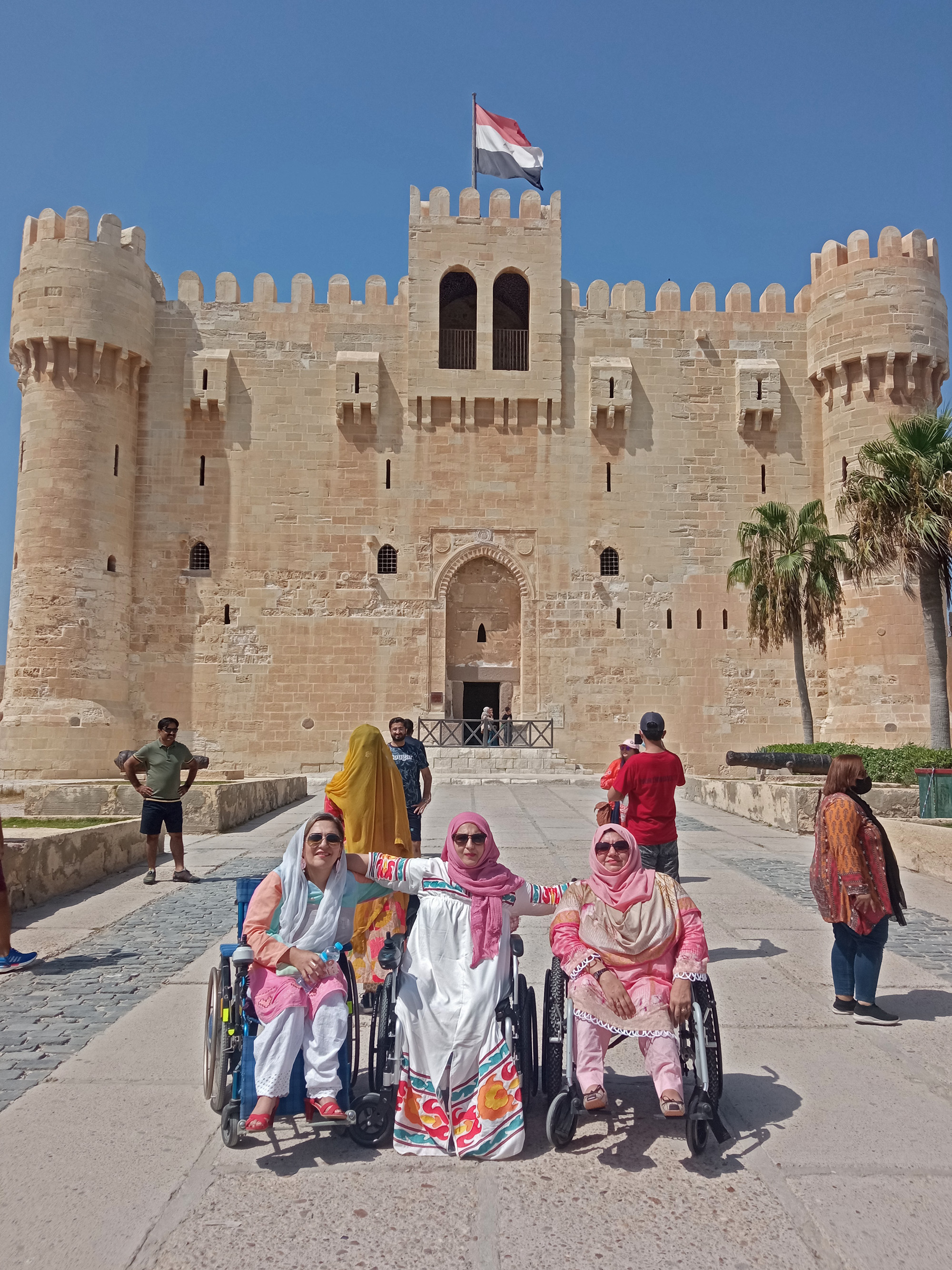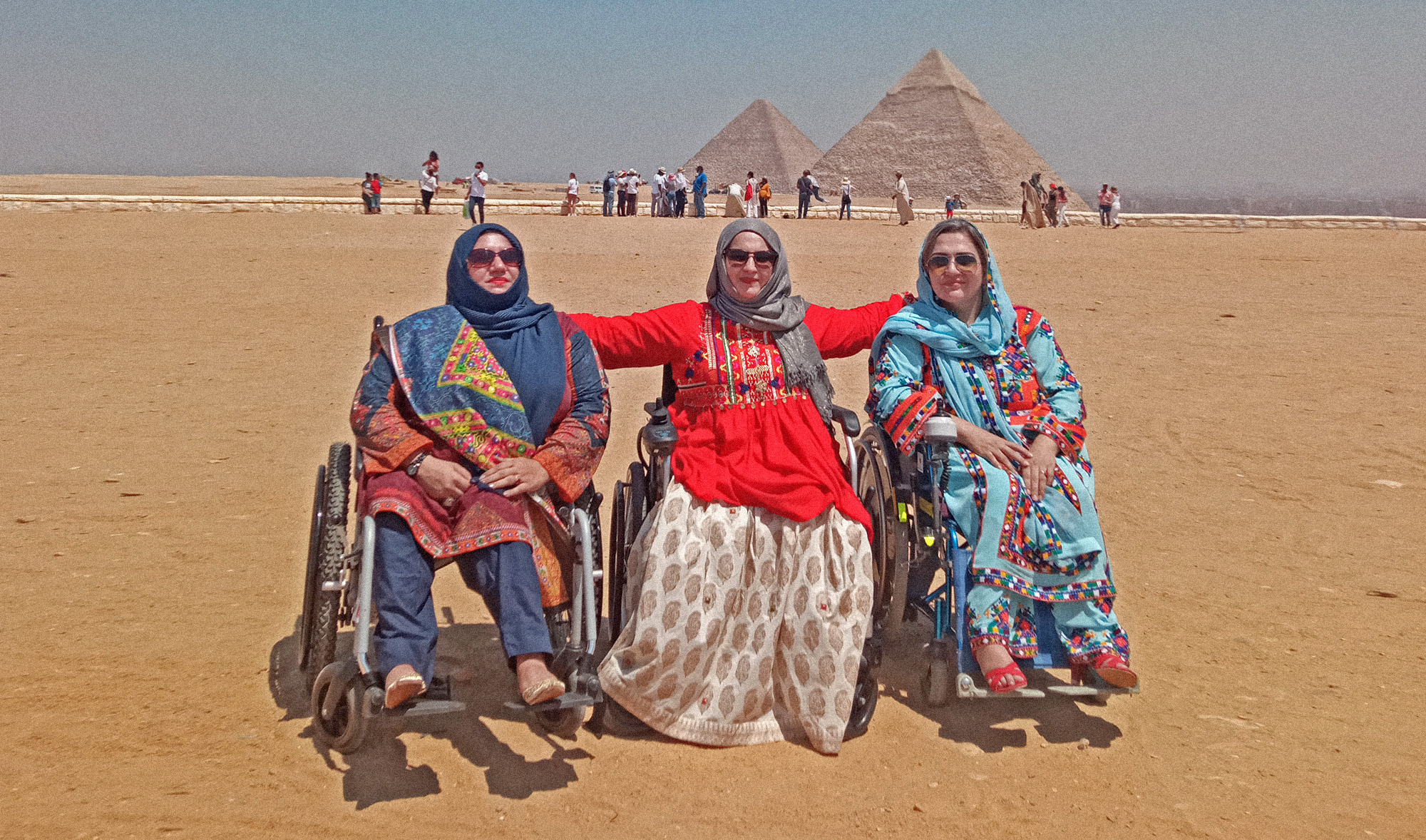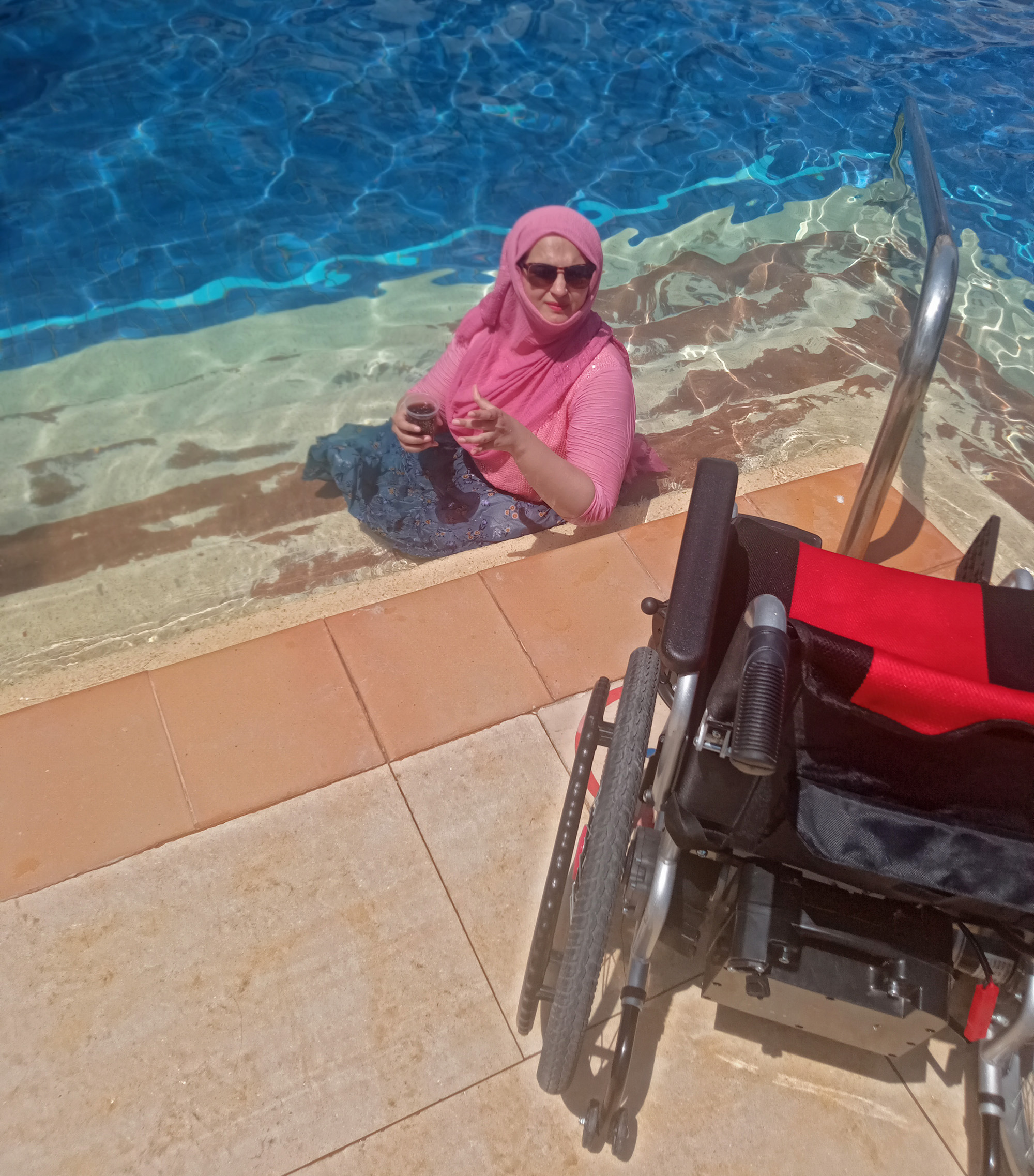RAWALPINDI: A Pakistani disability rights activist shared a travel photo on social media earlier this week that amassed over 100,000 likes across platforms.
The image showed her with two friends in front of the pyramids in Egypt, but what made it unique was the presence of wheelchairs in the picture since all the group members are differently abled.
“I am absolutely amazed by the response and totally overjoyed to see the love we are getting,” Tanzila Khan, who shared the photo, told Arab News on the phone.
Khan, who is on her way back to Pakistan from Cairo, hails from Punjab and manages her own women’s hygiene company.
She is also produced Pakistan’s first-ever comedy short film called “Fruit Chaat.”

Three Pakistani disability rights activists, Tanzila Khan, Zarghoona Wadood and Afshan Afridi, pose for a picture in front of Qaitbay Citadel in Alexandria, Egypt, on August 28, 2021. (Photo courtesy: Tanzila Khan)
Speaking to Arab News, Khan said that she met her other two friends, Zarghoona Wadood and Afshan Afridi, while participating in different conferences on disabilities.
Khan went to Turkey on a solo trip in January this year. Shortly after that, Afridi also traveled to Malaysia and Turkey, giving Wadood an idea that all three of them could go to Egypt and explore its rich history.
“Egypt had always been a bucket list destination for me,” said Wadood, who leads a women’s disability rights group and belongs to Quetta. “The pyramids have been there for centuries, and our presence in front of them was reflective of our empowerment and made us feel strong like them.”

Three Pakistani disability rights activists, Tanzila Khan, Zarghoona Wadood and Afshan Afridi, can be seen in front of the pyramids of Giza in Egypt on August 30, 2021. (Photo courtesy: Tanzila Khan)
She expressed happiness at the overwhelming public response to the picture, saying it implied that the image had “conveyed a positive message” to people.
The trio documented the details of their travel on social media as they visited museums, historic places and beaches from Cairo to Giza to Alexandra and Sharm El-Sheikh.
“We travelled independently without an agent or facilitator to arrange anything for us since we wanted to avoid explaining over and over what we needed in terms of accessibility,” said Afridi, a disability rights activist from Khyber Pakhtunkhwa. “Many people tried to scare us while we were planning the journey, but we really wanted to see Egypt.”

A Pakistani disability rights activists Tanzila Khan can be seen in Sharm El-Sheikh, Egypt, on August 29, 2021, during her travel to the Arab country. (Photo courtesy: Tanzila Khan)
Khan said it was rare for a travel platform or organizer to understand how to cater to differently abled individuals.
“We joined a group for sightseeing in Cairo,” she added. “While the person managing the tour was welcoming and tried to help us as much as possible, we instantly realized that our special needs would keep us disconnected.”
The three activists said they hoped their picture would ignite travel inspiration among people who are otherwise reluctant to undertake such journeys.
“We are telling the world that being in a wheelchair and seeing pyramids in a desert is not an easy task,” Afridi said. “But we have done it after we prepared ourselves against possible impediments. There were no people there in wheelchairs except for us! We have noted down every detail of our trip and can share guidelines with differently abled people like us. Why should we or they be left out of this?”
The three activists, who call themselves “The Powerpuff Girls” after an animated series featuring three superhero girls, have started shooting a documentary to create greater awareness about disability travel.
They have also started planning their next international trip to explore Spain in southwestern Europe.












